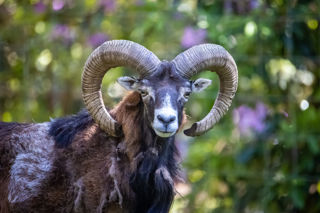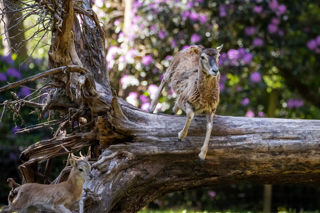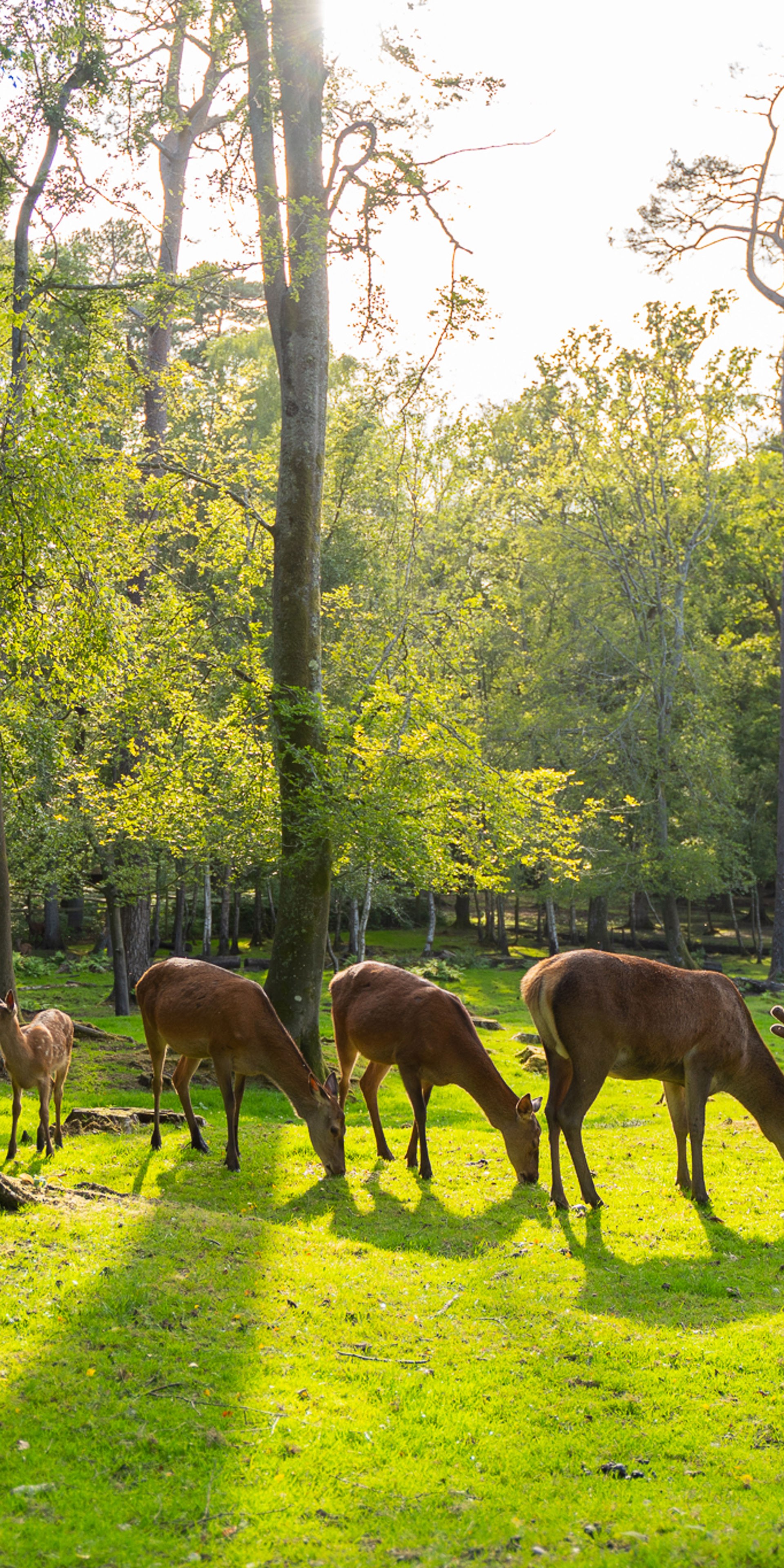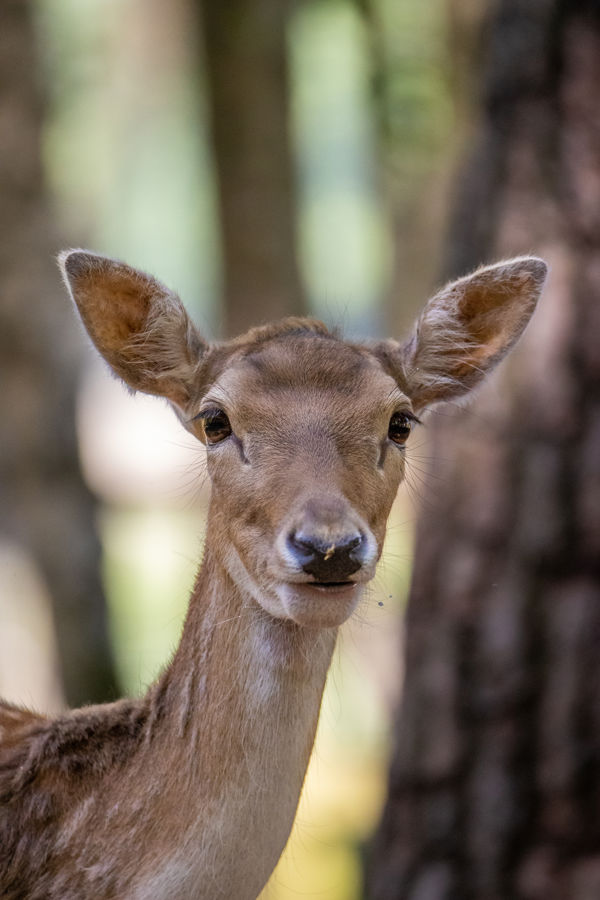Mouflon *CURRENTLY OFFSHOW*

General information
Mouflon are quite recognisable by their reddish brown coat with a dark stripe down their back and lighter patches on their sides.This herbivore grazes on grasses, leaves, bark, moss, mushrooms and lichens. Mouflon will live in small herds with an older ewe being the leader. Outside of rutting season, rams will form their own herds. During October and November, the rutting season, rams will butt heads competing with their large curved horns to win ewes to mate with. This is followed by a 5-month gestation period where each ewe will have one or two lambs during March or April. These lambs will be weaned at around 6 months old. Their main predators are wolves, sometimes lynx and eagles can take lambs.
Mouflon are a wild sheep species that originates from Islands in the Mediterranean. They were introduced to many countries across Europe for hunting purposes but have now become established in populations with no evidence of negative effects.

Latin name - Ovis aries musimon
Class - Mammalia
Order - Artiodactyla
Family - Bovidae
IUCN Status - Unknown
Habitat - Open mountain areas and hilly terrains
Distribution - Europe
Average Lifespan
8 to 12 years
Threats
Habitat loss, poaching and parasites or contagious diseases from domestic livestock.
Fun Fact
Ewes generally do not have horns but if they do they are very small. The rams have very large, curly horns which mature with the age and dominance of the male!
Our Residents
** Please note, our mouflon herd are currently off-show and unavailable to see **
These stunning species of sheep joined the collection here in 2015. We have a herd of one ram, named Bertie and 6 ewe’s.
We are delighted to be one of two collections in the UK to have Mouflon as an important species for education and our conservation programme; with a record 14 lambs born in April 2022.
Arriving on the 5th, 9th and 11th April, and additional 5 lambs have been born in 2024, these adorable additions are a testament to the park's dedication to the conservation of this unique wild sheep species.

Sign up to our newsletter
Join our mailing list in order to keep up to date with park news and special offers.




